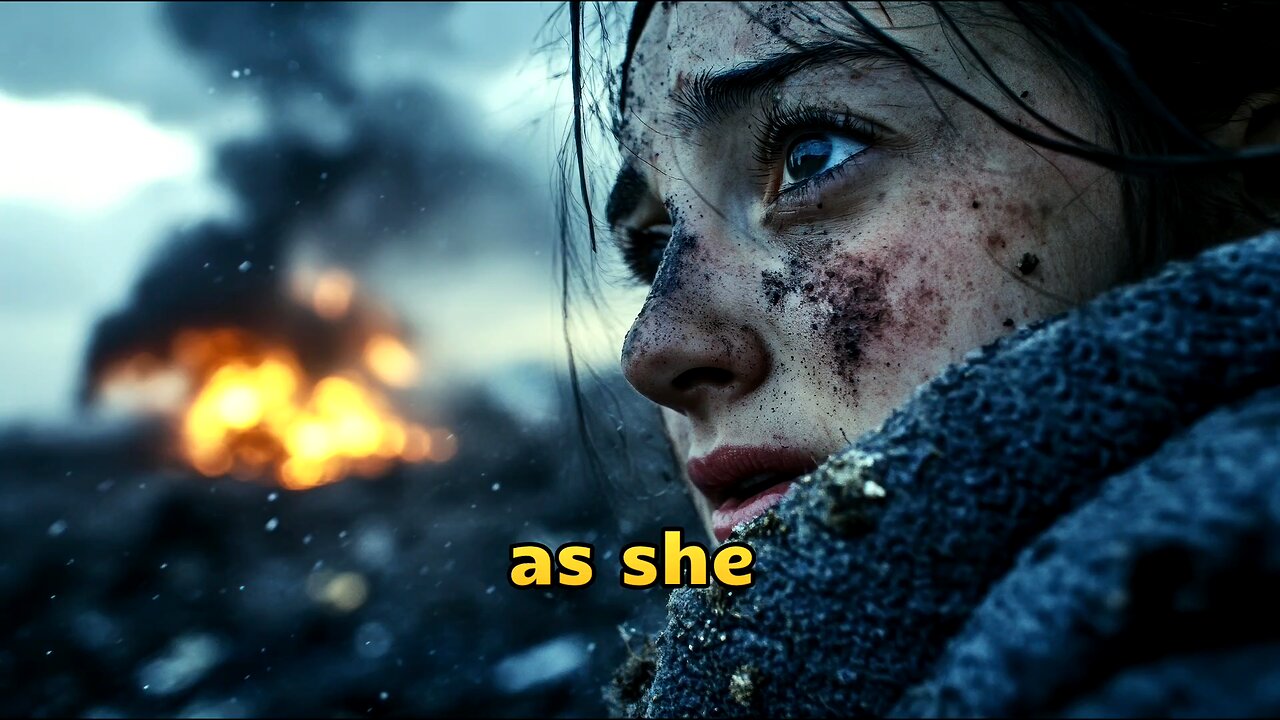Premium Only Content

Under the Unforgiving Sun: The Journey of Esperanza
#ImmigrantStories #GrassNotGreener #DesertTrials #ResilienceInExile #UnheardDreams #CrossingBorders #HopeAndHardship #InvisibleStruggles
Esperanza’s story began in a small village tucked away in the arid foothills of northern Mexico—a land of scruffy adobe homes, resilient hearts, and dreams that soared amid despair. From an early age, she listened to the whispers of distant, greener pastures, where every hardship could be exchanged for a chance at something better. But it was not a promise given freely. It was a promise forged by inner strength, hope, and, as she would learn, unimaginable sacrifice.
Her decision to leave was cloaked in both fear and fierce determination. Although her mother’s eyes had shimmered with both hope and sorrow at the prospect of a better life in the United States, she warned her daughter that the path was littered with peril. Yet, Esperanza pressed forward. With little more than a threadbare dress, a small bag containing faded photographs, and a heart full of yearning, she slipped silently into the night. The desert awaited—its vast openness a silent witness to the trials to come.
As the enormity of the border loomed ahead, the desert had already served as the first test. The heat was merciless, a fiery furnace that transformed every grain of sand into an abrasive shard of pain under the blistered feet. Days bled into nights as she trudged onward, her pace slowing, body weakening yet resolute in spirit. The sun, swinging mercilessly from the cobalt sky by day, yielded little relief when the cold emptiness of the desert night reduced comfort to mere illusion. In that barren wasteland, when the horizon seemed to recede into eternity, she encountered both the cruelty of nature and of those who preyed upon vulnerability.
In the unforgiving expanse, desperate souls roamed, and cruel men, masquerading as guides, exploited hopeful travelers with unthinkable abuses that seared scars deeper than those left by the relentless sun. Esperanza’s first brush with this cruelty forced her to confront the raw edges of her own mortality. With her innocence stripped away under the weight of exploitation, she was left with a jagged soul—one that was forced to learn harsh lessons about the trade-offs between dreams and survival. Strangers who promised sanctuary instead brought her more agony, leaving her with a memory of foreign hands that both harmed and tormented her fragile spirit.
After enduring a trail of suffering in the desert, the border was crossed—a threshold that many had seen as the gateway to salvation. But the promise of the United States, so fervently proclaimed from distant radio stations and whispered in secret meetings, soon crumbled before her eyes. In a land bustling with opportunity, Esperanza discovered that the shadows cast by exploitation knew no borders. Here, in the so-called land of freedom, she found herself mired in the same cycle of abuse she had hoped to escape. Employers who promised steady work repaid her trust with endless hours in back-breaking conditions, exploitation by those who thrived on the absence of legal protection, and social isolation that deepened her sense of displacement.
Under flickering neon lights in back alley rental rooms, the dreams of yesterday merged with the harsh realities of today. For every hopeful step on American soil, there was a corresponding fall—a reminder that the grass was not always greener on the other side. The narrative of a sheltering land was but a mirage. The systemic injustices that had stalked her in the desert were now ingrained in suburban neighborhoods, in corporate offices, and in the silent ways that society sidelined her hopes. Yet, despite the cruelty and the endless betrayal by those holding power, Esperanza discovered a fierce inner resilience. With every assault on her dignity, her resolve grew stronger; with every disappointment, her determination to forge her own destiny became more unyielding.
In the quiet hours of late night, amidst countless unanswered dreams and memories stained with injustice, Esperanza questioned the mythology of a promised land. Her journey had been marked by the paradox of ambition and regret—a painful odyssey that revealed that promises were often mirages, that salvation was not served at the hand of fate, and that life, in all its raw brutality and fleeting beauty, must be confronted with unrelenting fortitude. It was in these silent moments of self-reflection that she began to rebuild herself, not as a victim, but as a survivor committed to rewriting her narrative.
The story of Esperanza is not only one of personal struggle, but a broader narrative about the immigrant experience, a testament to the desperation of those searching for a better life and the systemic failures that plague the promise of opportunity. Her journey, punctuated by the cruelty of both natural elements and human exploitation, serves as a stark reminder: the grass is not always greener on the other side. For every tale of survival and success, there is a counter-story—one that challenges the myth of effortless transformation. Esperanza’s painful odyssey asks us to look deeply at our collective promises and to recognize that, often, nothing is ever truly promised.
In the end, her story is written not in the ink of a flawless dream, but in the indelible marks of hardship, defeat, and ultimately, resilience. It is a narrative that calls upon society to honor the truth of countless untold stories and to challenge the very notion that crossing borders guarantees an escape from the shadows of exploitation and prejudice. It is by acknowledging these truths that we might someday create a future that offers not just promises, but genuine pathways to a better life for all.
-
 1:18:23
1:18:23
Simply Bitcoin
2 days ago $1.38 earnedThe Bitcoin Crucible w/ Alex Stanczyk and Lawrence Lepard
2.81K3 -
 1:25:03
1:25:03
Jeff Ahern
3 hours ago $12.70 earnedThe Saturday Show with Jeff Ahern
56.3K8 -
 1:31:56
1:31:56
Michael Franzese
18 hours agoWill NBA do anything about their Gambling Problems?
113K25 -
 57:26
57:26
X22 Report
8 hours agoMr & Mrs X - The Food Industry Is Trying To Pull A Fast One On RFK Jr (MAHA), This Will Fail - EP 14
85.2K52 -
 2:01:08
2:01:08
LFA TV
1 day agoTHE RUMBLE RUNDOWN LIVE @9AM EST
142K12 -
 1:28:14
1:28:14
On Call with Dr. Mary Talley Bowden
6 hours agoI came for my wife.
21.3K31 -
 1:06:36
1:06:36
Wendy Bell Radio
11 hours agoPet Talk With The Pet Doc
59.6K28 -
 30:58
30:58
SouthernbelleReacts
2 days ago $8.30 earnedWe Didn’t Expect That Ending… ‘Welcome to Derry’ S1 E1 Reaction
38.7K10 -
 13:51
13:51
True Crime | Unsolved Cases | Mysterious Stories
5 days ago $19.36 earned7 Real Life Heroes Caught on Camera (Remastered Audio)
56.6K12 -
 LIVE
LIVE
Total Horse Channel
17 hours ago2025 IRCHA Derby & Horse Show - November 1st
104 watching